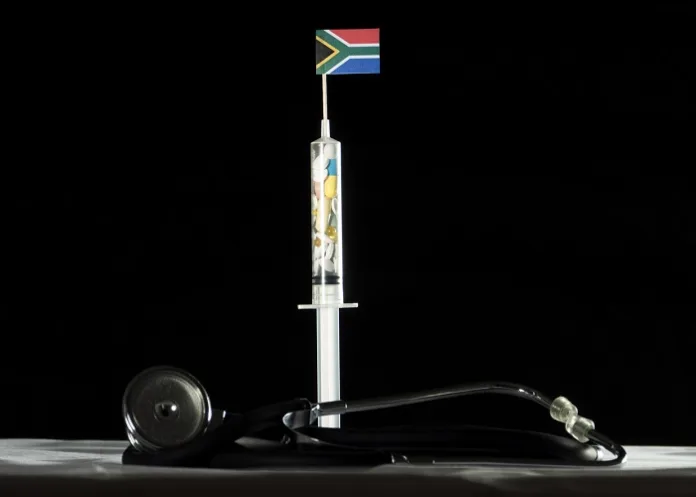Tax credits for medical aid members will now be diverted to the NHI Fund instead, government said this week, spelling bad news for members who have long enjoyed the tax credits they get for forking out for private healthcare.
Consumers already face increases in medical aid rates for 2024, reports The Star. Now, according to the NHI presentation made by the National Department of Health to the National Council of Province last week, the funds used to reimburse medical aid scheme members every year would instead be fed into the NHI Fund.
Nicholas Crisp, the deputy director-general for the NHI at the Health Department, said the idea of shifting funds from the wealthy to the public system had been an ongoing discussion for years.
“Neither of these systems is efficient or effective, and we spend a lot of money considering the poor outcomes. We need to operate in a far more cohesive way if we are going to achieve outcomes for everyone in the community.
“The tax credits are just one method … discussed, several years ago that instead of giving a couple of hundred rands a month to wealthier, middle-class and upper-class people, instead of giving it as a credit… we would have additional money to enable the public sector to fix some of the things that are broken,” he said.
South African Institute of Taxation CEO Professor Keith Engel said it was clear the Department of Health was moving ahead with the NHI, despite opposition on all fronts.
He said there had been repeated discussions on eliminating the tax credits for medical aid.
“They have been having that on the table for more than a decade. No surprises there, they will continue to push,” he said.
Engel said while it remained to be seen if the Treasury would follow through with the move, “what will fund NHI is a heavy load of new taxes, none of which we can afford, a battle for another day”.
Economist Dawie Roodt said he doesn’t have a problem with eliminating the tax break on medical contributions, in theory, but that should be offset by a general lowering of taxes.
“Theoretically, the taxpayer should not get a tax break for medical contributions. A tax system is supposed to be neutral and this is an example of non-neutrality.
“The issue here is that the typical middle-income taxpayer is hugely overtaxed already, and the Finance Minister has indicated he will increase taxes again, and it will obviously be on the same people.”
Roodt expressed concerns about NHI, saying it would be another money pit and a disaster.
Meanwhile, echoing concerns about funding of the NHI, and calling for the “freeing up” of Section 33 of the Bill, founder and CEO of Discovery Limited Adrian Gore says the current tax base – especially in the context of current poor economic growth levels – cannot foot the bill for it.
Speaking at the PSG Wealth’s Thing Big Seminar on Tuesday, he said without private sector participation, government’s ambitions for universal healthcare will simply not be possible.
He acknowledged that although the state’s aims for the Fund are noble and needed, there just is no clear blueprint on how it plans to achieve such a huge feat without a considerable contribution from the private healthcare sector.
“The key issue of discussion and debate is that it is not workable without private sector collaboration, that’s our unequivocal point,” he said.
“The issue to us is clear – when you look at the numbers, the funding, the complexity – it requires private sector collaboration. If that can be achieved, then the NHI Bill can be made workable,’ he added.
Gore warned that in a decade from now, when the NHI is expected to begin taking effect, the plan as it currently exists will see a dramatic drop in the quality of healthcare on offer in the country, while burdening the already stretched taxpayers.
This is expected to be especially the case should the country’s tax base continue to shrink, and the economy continue to register anaemic growth, reports MoneyWeb.
“We are really advocating for freeing up Section 33 (of the NHI Bill) as it (stands)… Once it’s (the NHI) fully implemented, let’s then work out the role of the private sector and medical schemes,” he noted.
He said the private sector held greater credibility weight than government does on its own.
“Research shows that the business sector is trusted by broader society. In many countries businesses are often seen in a negative light, but it is trusted by South Africans – not to say we don’t do bad things and there aren’t extreme [cases of] terrible behaviour.
“But in the main, we are seen as a force for good, and therefore if that can be brought into this discussion in a constructive (way) …,” Gore added.
The Star PressReader article – Medical aid tax credits may go (Open access)
MoneyWeb article – Ease up on Section 33 of NHI Bill – Discovery boss (Open access)
See more from MedicalBrief archives:
NHI Bill ‘won’t be a silver bullet’ in saving public healthcare in SA
‘Not even its supporters agree’ on what NHI means for private health
Motsoaledi: ‘No caring state should leave such inequality unattended’

